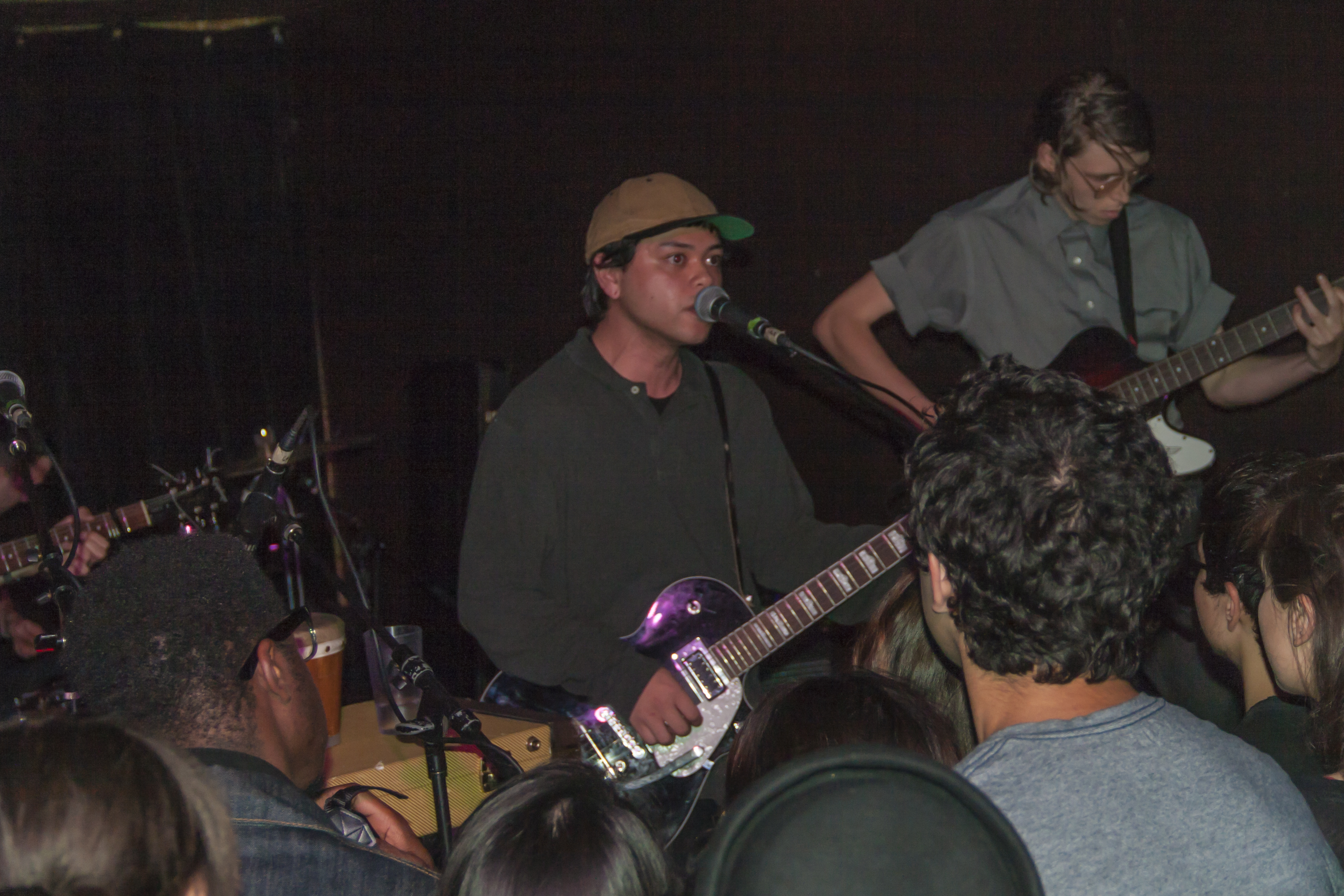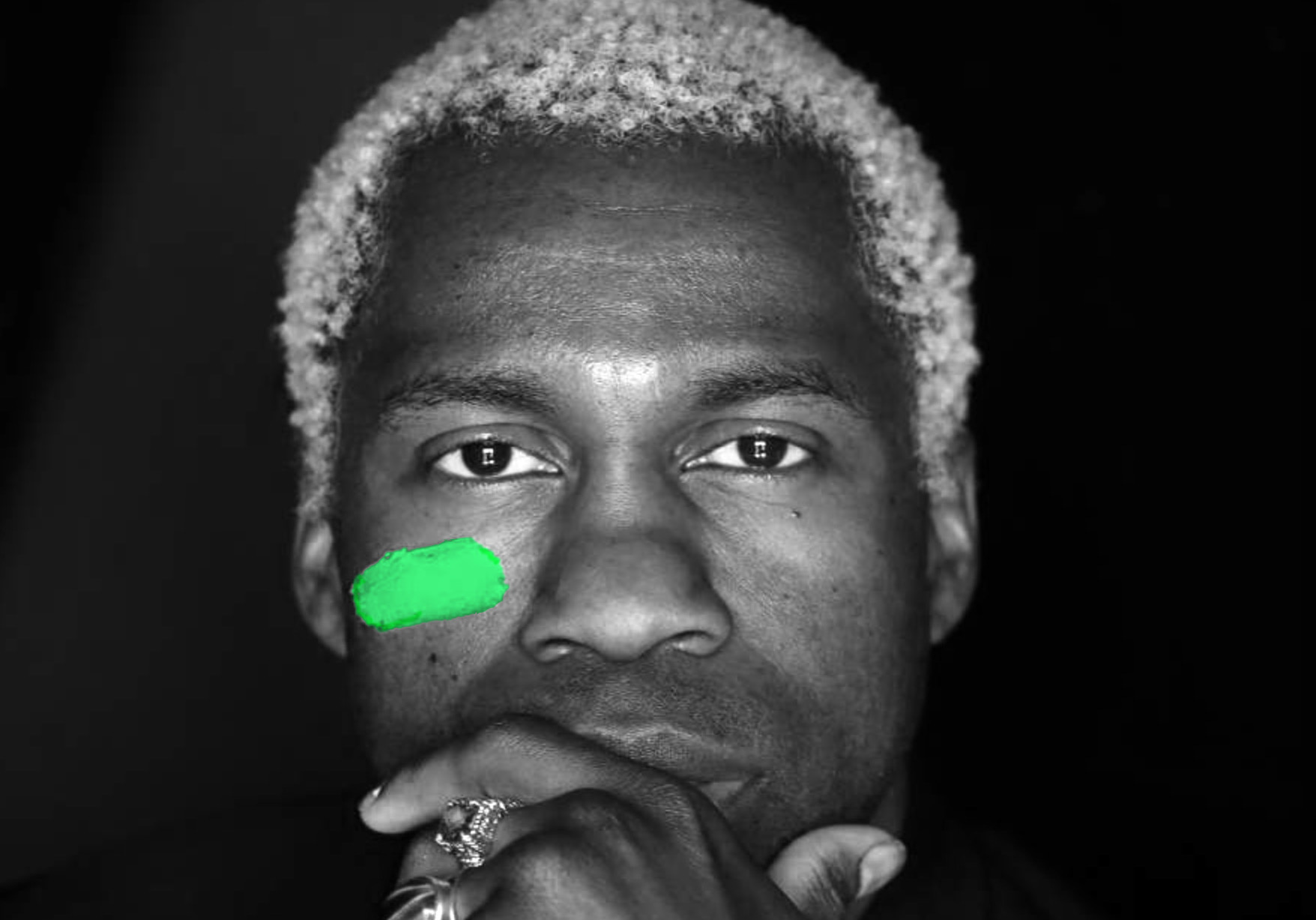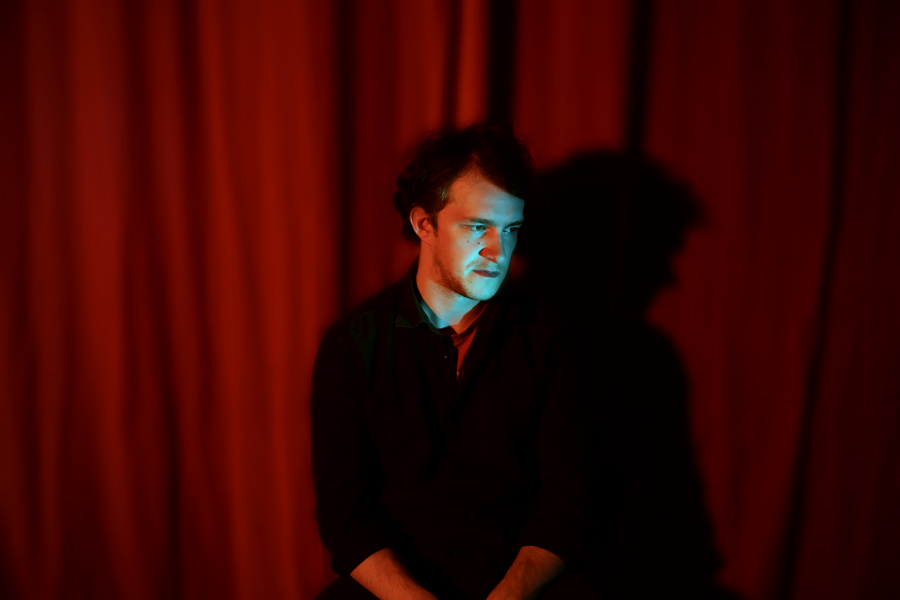Fresh off the release of her sophomore album ‘You’re Not Here You’re Everywhere,’ North Carolina-based genre-blurring artist Maia Kamil talks collaboration and musical friendships, signs and symbols, and mourning through music.
by guest writer Celia Buckley
‘You’re Not Here You’re Everywhere’ – Maia Kamil
“If I have too much input, I start to lose direction because almost everything moves me. I’m very emotional. I start to lose my sense of gravity,” Maia Kamil tells me when I ask about her influences.
Though she has her fair share – from her childhood filled with Joni Mitchell and Crosby, Stills, Nash & Young, to Emily King and contemporaries like Madison Cunningham and Silvana Estrada – she finds much of her inspiration in moments of silence and natural soundscapes. She recalls her grandmother’s garden and the backdrop of birdsong, hours spent with friends drinking coffee and talking on a porch.

Based in Winston-Salem, North Carolina, Maia Kamil released her second album You’re Not Here You’re Everywhere on May 24, 2024. The seven-track album invites us into the tender depths of loss and longing, and also ephemerality. The opening track “First Sip” is both eerie and upbeat. The first few notes are metallic, like keys or charms jangling, and soon overlap with a melodic and dreamy whistling.
“The first thing that you hear on the album were my grandmother’s bells on her porch,” Kamil explains, “they captured something that nothing else was really able to capture – the whole idea of wind and spirit and questions of [what happens] after you die.”
“First Sip” sets the tone for the rest of the album, a portal to a state both grounded and diaphanous. Only twenty-one seconds long, the track slips away before you know it and rolls into the meandering banjo of “Goodbye,” a song that reckons with change and transitions – the passage of time, growing up, moving – and the idea that ultimately, we must move forward. The message is at once hopeful and bittersweet.
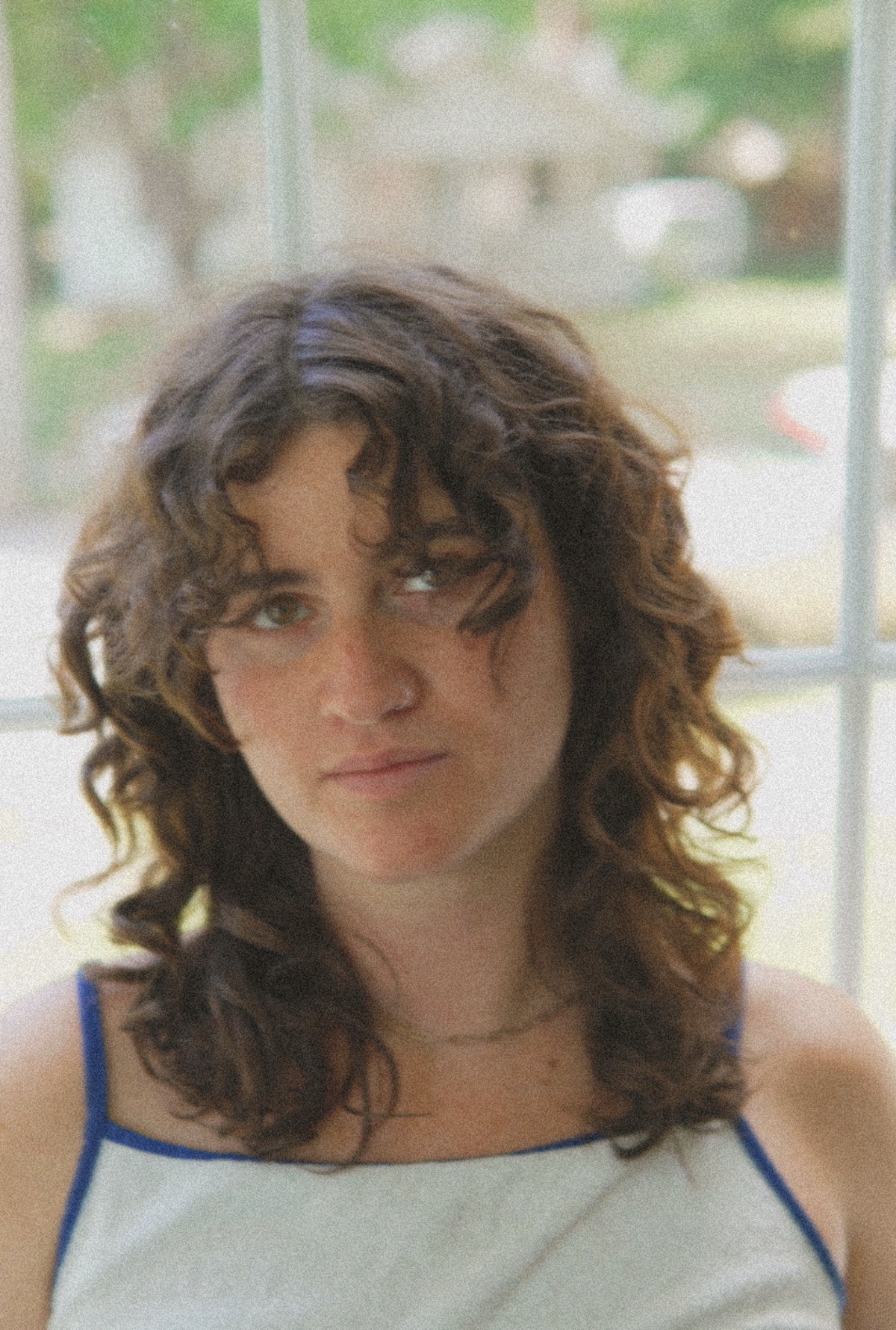
The album’s titular song as well as “Goodbye” both emerged from the depths of Kamil’s grief after losing her grandmother, Rosalind Till, who died in the winter of 2023.
Grief is central to the album as a whole, but the collection of songs speaks to all kinds of love and relationships, beginnings and ends, and how they overlap. The third track, “On My Mind All Night,” was partially inspired by a brief romantic encounter, but the song’s simple lyrics leave plenty of room for interpretation. In the world of this album – where time is both compressed and suspended – connections, whether generations-deep or one-night stands, eclipse on the same plane.
“I’m very into cycles, chord wise or lyrically,” she says, “In ‘Goodbye,’ there’s the line: It’s just a circle dance, so close your eyes, enjoy the ride and in ‘I Was Wrong You Were Right’ there’s these chord progressions that are very cyclical,” (as well as a revisitation of the whistling heard in “First Sip”). “Last Call” features the harmonies heard in “On My Mind All Night,” slowed down in such a way that they take on a new texture, bringing to mind echoes drawn out in empty spaces.
In addition to her background of Jewish spiritual practices, Kamil processes life events and finds meaning in symbols both in the waking hours and dreams, plus other mystical ideologies – all of which seep into her songwriting. She is also interested in how people mark time, and feels that the making of this album allowed her to mark her grandmother’s passing in a tangible way. The song “You’re Not Here You’re Everywhere” began as Kamil sat on the phone with her grandmother in the final two hours of her life.
The day after she died, Kamil drove to New York from North Carolina to sit shiva with her family, she tells me, noting how the number of songs in her album happens to parallel the seven days of shiva.
“There are a few things that [my grandmother] said in delirium, towards the very end, that are actually in some of the songs as well. In ‘You’re Not Here You’re Everywhere,’ the last verse says, pick me up, let me go, bring me out, which were some of her last words. It’s just like what you would say as a kid, right? [It was part of] her internal battling of having to leave this world.”
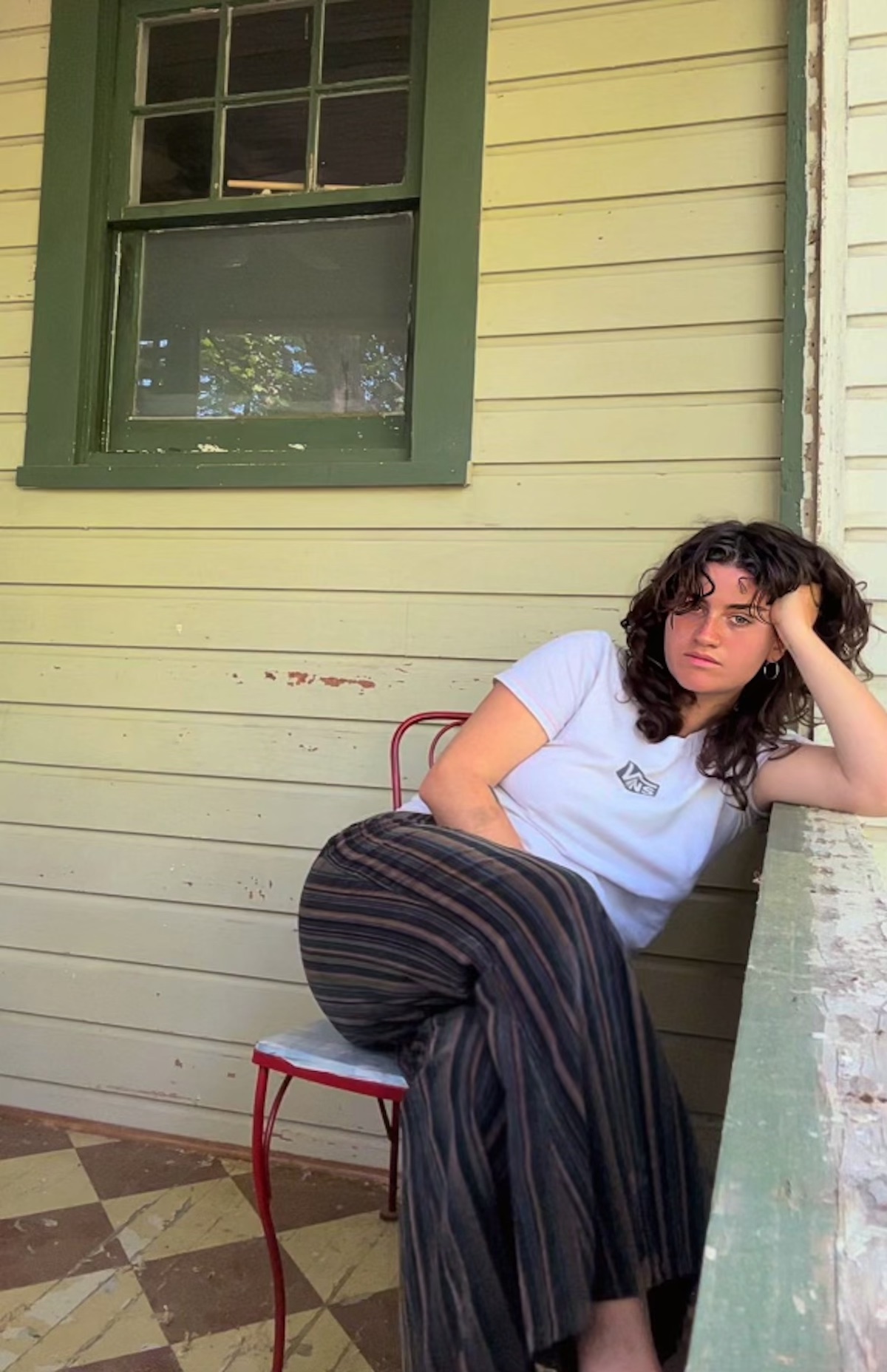
After graduating college in 2019, Kamil moved to North Carolina to stay with her family friend, the acclaimed guitarist Charlie Hunter and his family.
She ended up staying in the area for much longer than anticipated; she now lives close by, on the same block as multiple of her friends and musical collaborators. You’re Not Here You’re Everywhere was recorded in her close friends Tori Elliott and Ethan Gingerich’s music studio. Their proximity to one another and the intimacy of friendship is felt in the thoughtful instrumentation and warm, swelling harmonies in songs such as “On My Mind All Night.”
“Tori and Ethan saw me through the grief and they watched me struggle for months. After we recorded the demo for ‘You’re Not Here You’re Everywhere’ we cried for like, an hour straight, the three of us in the studio. For all of us to know what I’d been going through, and their own losses… to have a song that captured it so perfectly was a really, really special moment.”
Kamil’s first album Good Life (2023) shows us a modern bluesy-rock sound, with guitar-driven rhythm, rolling percussion, and soulful vocals. She’s quite versatile, having been a backup vocalist for rappers and hip-hop artists in the past. She currently sings backup for her friend Tori Elliott’s band, Victoria Victoria, whose latest album leans toward pop. Kamil’s latest album is a testament to her flexibility and vulnerability as she progresses in her musical career, in this stripped-down, intimate set of songs. Still, her voice is comforting, assured, and a bit jazzy. Kamil’s music is shaped by her environment and the people who surround her, mentioning how her relocation to North Carolina brought the influence of folk and bluegrass music.
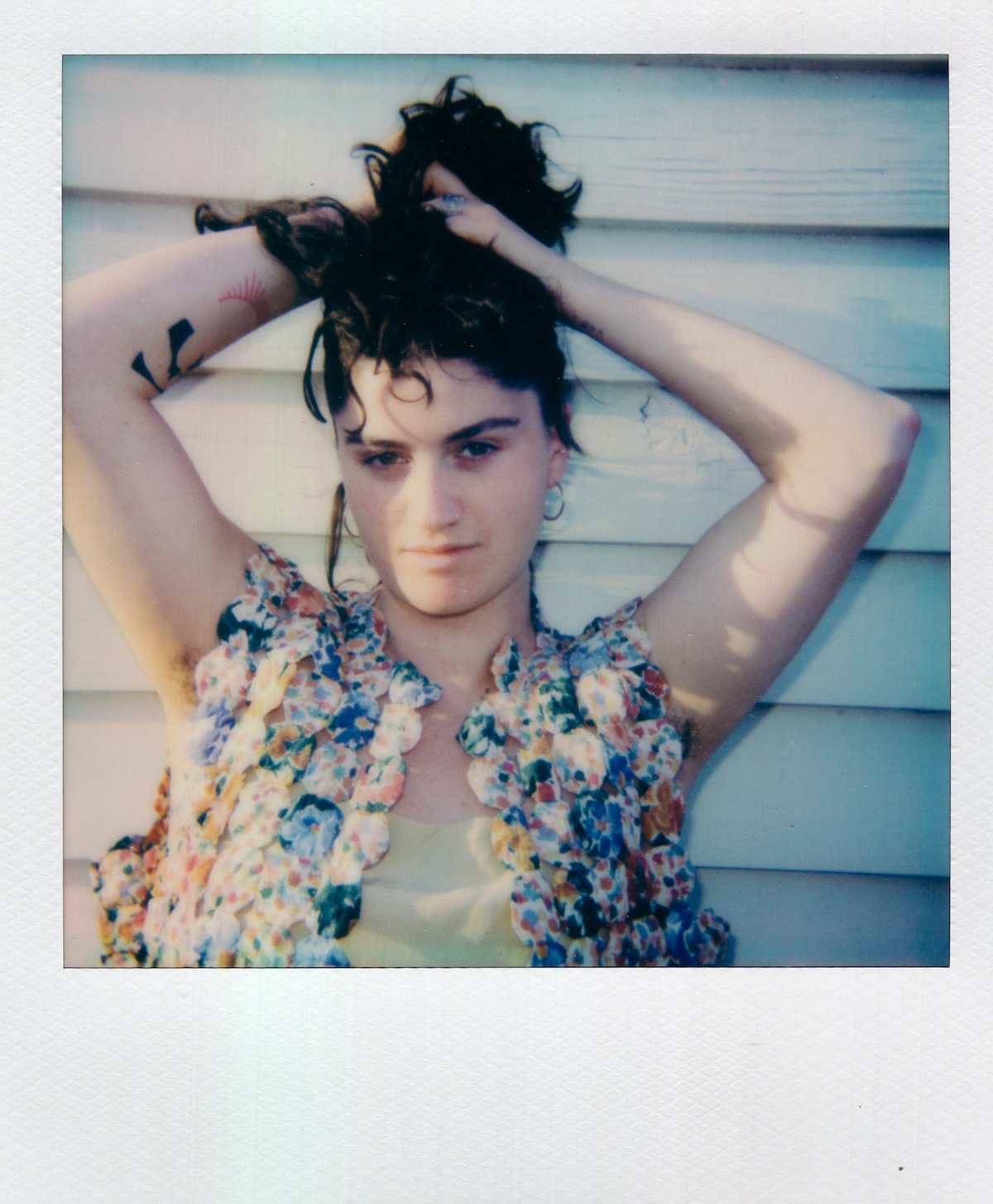
There is almost a sense of nostalgia for the present moment, as one can feel it slipping away as it happens – a feeling that is familiar to all.
In a time when our attention is constantly being pulled toward the loudest and flashiest bites of media, it can be uncomfortable to slow down and sink into the present. But You’re Not Here You’re Everywhere is a warm invitation to do so, and it unfurls into a celebration of life. Kamil notes that “the album was kind of about coming home, coming out of the ether, and this story of deep longing that comes in any relationship, this longing to arrive somewhere.” And that is exactly what Kamil does in this album – she pulls us, gently, into an abyss, and then she guides us back to the ground.
You’re Not Here You’re Everywhere was produced by Maia Kamil and Tori Elliott, engineered and mixed by Ethan Gingerich, and mastered by Dave Mcnair. The album features Luke Scaggs on guitar, banjo, and viola; songwriting and drums by Charlie Hunter; background vocals by Tori Elliott, Kevin Elliott, and Morgan Gingerich; and songwriting and guitar by Kevin Beck.
— —
Celia Buckley is a writer and artist from New Jersey. She enjoys writing about the arts, food, and travel.
— —
:: stream/purchase You’re Not Here… here ::
:: connect with Maia Kamil here ::
“I Was Wrong You Were Right” – Maia Kamil
— — — —

Connect to Maia Kamil on
Facebook, TikTok, Instagram
Discover new music on Atwood Magazine
© courtesy of the artist
:: Stream Maia Kamil ::

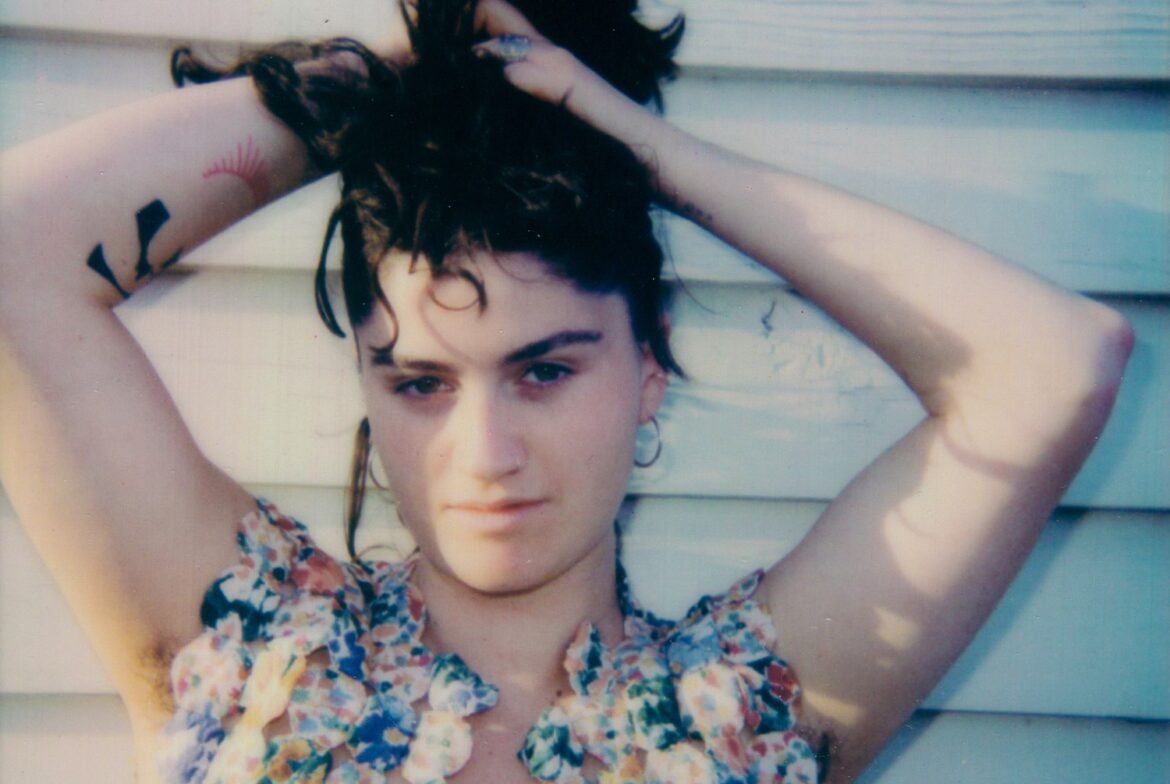
 © courtesy of the artist
© courtesy of the artist


